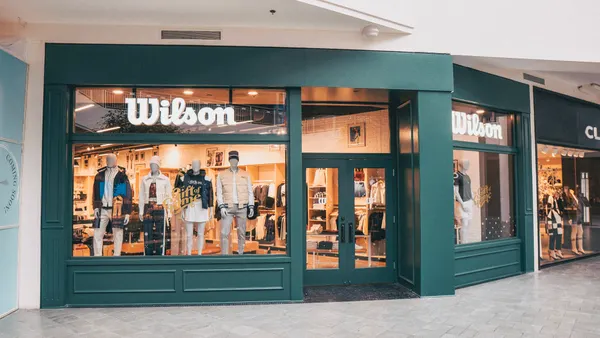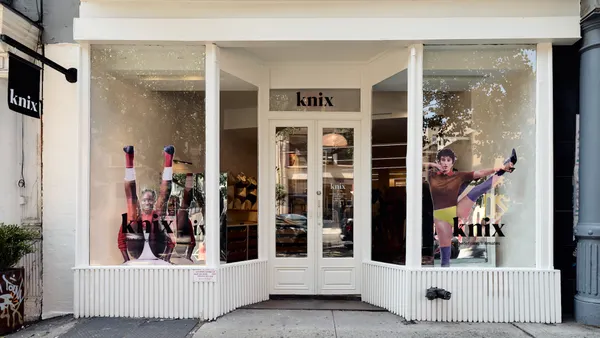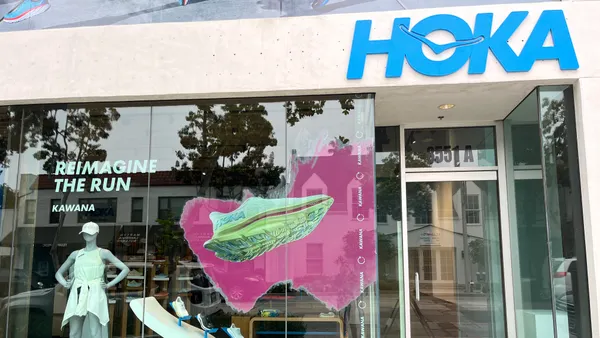Dive Brief:
-
Two-thirds of frequent online shoppers have used Amazon Prime in the past year, and that has fueled expectations that shipping should be fast, free and trackable, according to new research from public relations firm Walker Sands. A massive 81% say that free shipping is a primary motivator for shopping online more frequently, according to the report, which was emailed to Retail Dive.
-
For retailers that, unlike Amazon or Walmart, don't have a vast fulfillment network of their own, shoppers are open to getting their packages from third parties. A majority (57%) are willing to pay at least $5 for next-day shipping while another quarter (24%) would pay between $6 and $20, according to the report.
-
Frequent online holiday shoppers are demonstrating other intriguing behaviors, like a willingness to buy bigger ticket items without seeing them first. Nearly a third (30%) reported having spent more than $500 online without seeing an item first, and 13% have spent more than $1,000 without seeing an item first.
Dive Insight:
Shoppers are using their phones, voice assistants and other online searches to find items at the same price anywhere, and they want to ensure timely delivery of their gifts, according to Walker Sands. That makes high-quality images, up-to-date inventory and transparent delivery tracking critical.
Last-mile delivery — that great separation of online and in-store shopping that is eating into many retailers' margins — can be rationalized somewhat if retailers take into account consumers' willingness to pay for super-fast delivery and leverage their stores for pickup services for online orders, Walker Sands' research suggests.
"Shoppers are more concerned with timely delivery than a reasonable delivery charge," according to the Walker Sands report. "Other options to consider include in-store pickup and third-party delivery services such as Uber or Deliv."
Some 41% of shoppers say they want hyperlocal delivery and 38% would pay for it, according to the "State of Shipping in Commerce" survey released earlier this year from fulfillment software company Temando. Just 24% of retailers offer it now, though 18% of retailers would like to offer it in the next 12 months. Almost 100% of shoppers also say they would like delivery date estimates, yet more than half of retailers currently don't offer this feature.
Voice has also emerged as a powerful ordering tool among frequent online shoppers. Nearly a quarter (24%) of self-identified frequent online shoppers 'often' or 'always' purchase through voice-controlled devices, and that could rise further this year, Walker Sands said. Some 44% of total survey respondents said they are 'somewhat' or 'very likely' to make a purchase through a voice-controlled device in the next year.
Amazon's Echo is dominating in that space, but Google Home is fighting hard with new retail partnerships. Amazon devices like the Echo and Dot speakers, along with apps in mobile devices, could provide some $10 billion in revenue by 2020 and be a "mega-hit," according to a note published this spring by investment bank RBC Capital Markets. That said, Google has been working hard to add features that Alexa doesn't have and enjoys a wide-open ecosystem.
The Home Depot said last week that it's joining Google Express this fall, adding Google Assistant's voice shopping ability for customers via the the Google Express website and app. Last month Walmart similarly announced its partnership with Google to bring voice shopping to Walmart customers. Some 35.6 million Americans will use a voice-activated assistant device at least once a month this year, according to research released in May from eMarketer. If that forecast proves correct, it would be a 129% jump in voice engagement with virtual assistants over last year.
The battle is just getting started and will be fueled by the upcoming holiday season, according to Luke Starbuck, vice president of marketing at customer care automation platform Linc, who notes that the perception of voice assistance as futuristic has become a reality. A huge majority (87%) of retailers expect to be using AI for customer service and engagement within the next 24 months, while 41% are using it or experimenting with it already, according to Linc's research.
"This increasing popularity, coupled with retailers' desire to partner with voice platforms, will continue to snowball until voice platforms are the norm and an essential asset for any brand," Starbuck told Retail Dive in an email. "Especially following the announcement of the Walmart's partnership with Google Home just a few weeks ago, [Home Depot's] latest move indicates that there will be an ongoing battle for market control between Amazon Alexa and Google Home, especially as we head into the 2017 holiday sales season."
This story is part of our ongoing coverage of the 2017 holiday shopping season. You can browse our holiday page and sign up for our holiday newsletter for more stories.













